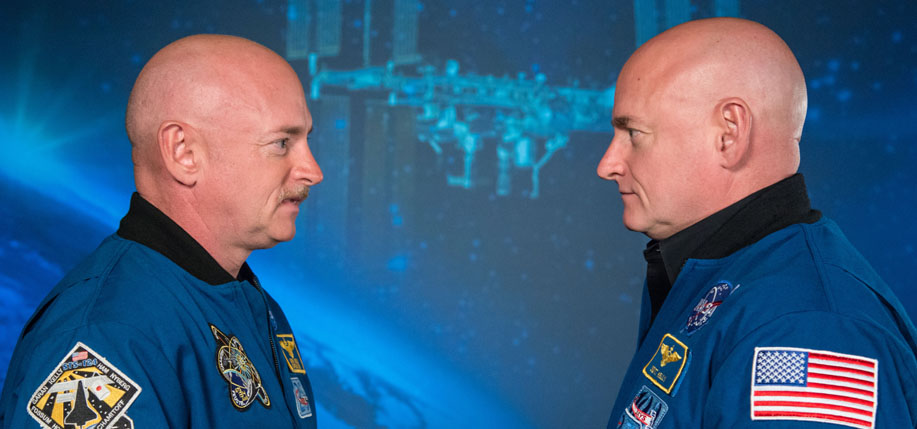The first results from a years-long study about the effects of prolonged space travel involving celebrated Irish American astronaut twins Mark and Scott Kelly (below, left and right) were released by NASA in January. The study, aptly named the Twins Study, compared biological samples shared by the brothers after Scott’s nearly year-long posting at the International Space Station while Mark stayed earth-bound.
In addition to returning to Earth a full two inches taller (a result of the expansion of his spinal discs, which contracted back to normal after a short time back on the planet), researchers found that the caps on the ends of Scott’s chromosomes, called telomeres, in his white blood cells lengthened. This was an unexpected finding, considering telomeres shorten over the course of human life and space travel was thought to accelerate that process. Kelly’s telomeres returned to normal length back on earth. The rate of DNA methylation, the process by which DNA modifies and copies itself, also slowed while Kelly was in space, and returned to normal once he landed.
“The greatest importance of the study is to show that we can do it,” Andrew Feinberg, a geneticist at Johns Hopkins University School of Medicine in Baltimore and member of the Twins Study research team, told Nature. “I don’t think people realized it would be so easy to do genomics on astronauts in space.”
The full results of the 10-part study won’t be available for several more years as NASA continues to monitor Scott and Mark. When they are, it could fundamentally alter the feasibility of long-term space travel, paving the way for landing a human on Mars, which would involve a seven-month trip. ♦
First Findings in From NASA Twin Study

Commander Scott Kelly (right) with his brother, former astronaut Mark Kelly speak to news media outlets about Scott Kelly's 1-year mission aboard the International Space Station, January 19, 2015. (Photo: Robert Markowitz / NASA)

Leave a Reply